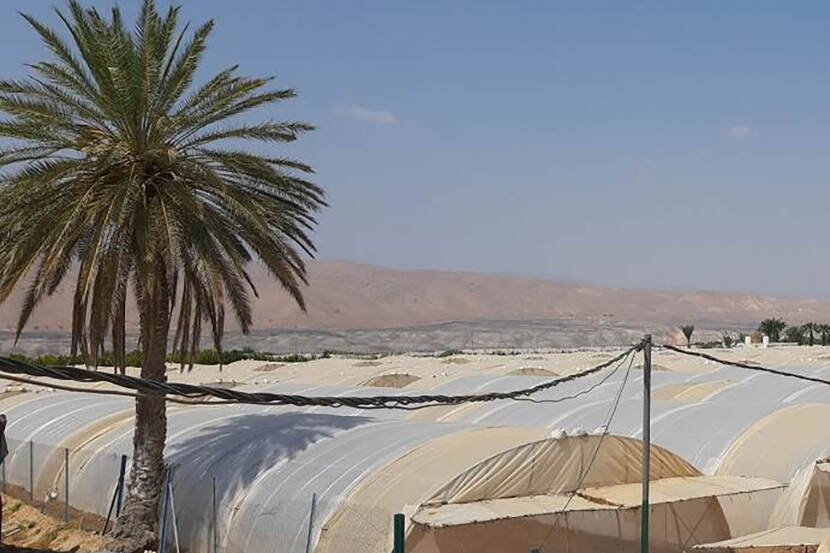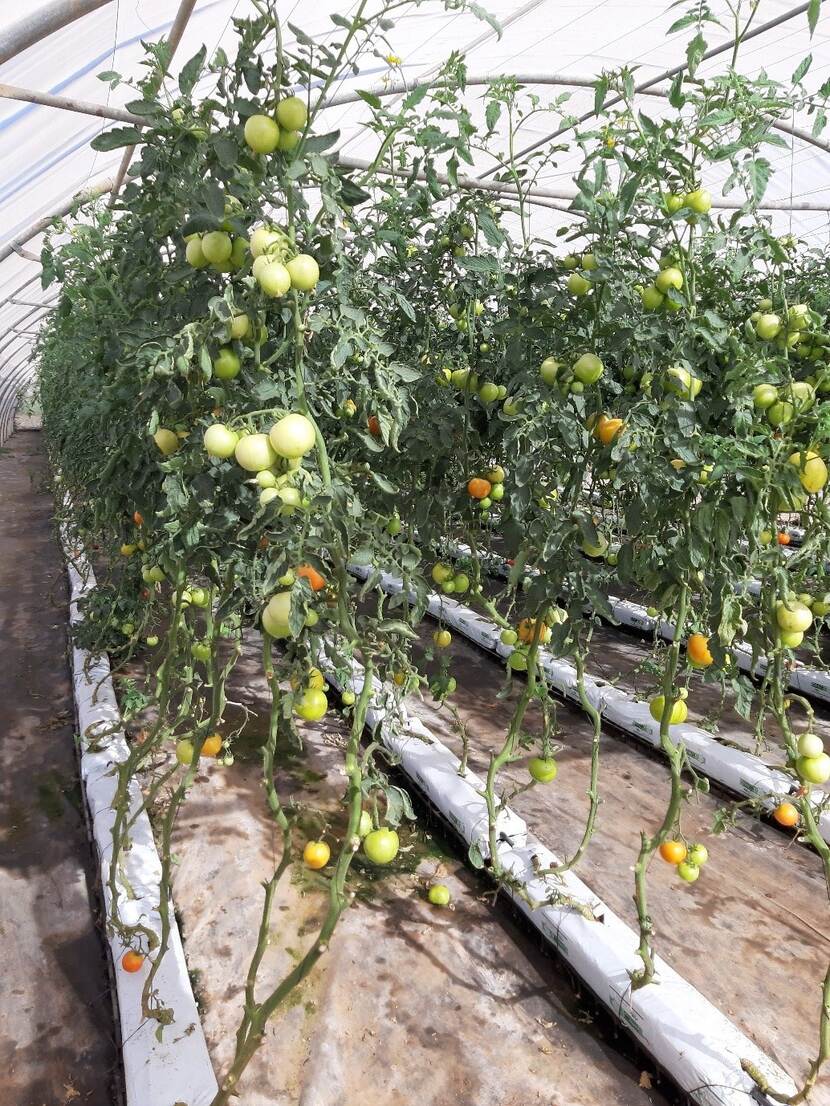Tomatoes, dates and olives in Jordan
Cooperation, trade and investment opportunities in three promising value chains highlighted. The Food and Agriculture Organization (FAO) Jordan Office has carried out a rapid appraisal of three selected value chains that are of export potential and accessible to high value markets. These value chains were also highlighted for their potential to positively impact both women and men small-scale farmers, in particular youth, while also being environmentally sustainable. These value chains offer good opportunities for cooperation trade and investment supported by Dutch funded programmes.
A recent High-level meeting on ‘optimizing agricultural value chains’ took place to review the findings of FAO’s value chain study and to discuss priority actions and key areas of investment to address these with public and private stakeholders. The study selected three priority value chains: Olives, Dates and Tomatoes based on annual production, economies of scale, planted area, export performance, seasonality, untapped export market potential.

Highlights
The main highlights for each value chain:
-
The Olives Value Chain
A locally competitive sector; 1 billion investment, benefiting 80,000 families. The total Cultivated Area of olive trees is 562,000 dunums (0,1 hectare), about 72% of total fruit trees planted area; 10.5 million trees, producing about 145,000 tons of olives, about 25,000 tons of oil. The sector is dominated by fragmented farms with high percentage of none dedicated farmers (farm owners), limited job creation possibilities (seasonal temporary labour). There are no incentives for producing high quality olive oil since attention is mostly given to quantity over quality, which impacts growing, harvesting and post harvesting methods. The olive market is protected, where the local prices of olive oil are much higher than those in international markets, which makes exporting less feasible. Oil prices are controlled by the most influential actor in the value chain “the pressing mills”. Coordination among the value chain actors is weak.
-
The Dates Value Chain
A relatively new sector, started in early 2000’s. The total Cultivated Area is 35,000 D, mainly in Jordan Valley and Azraq areas. About 8,000 direct jobs created, 35% are for women, and are more related to the grading and packaging centers. Over the period of 2014-2018, exports had an average annual growth of 23% in values and 12% in quantities. The sector consists of about 150 investors/farmers with average land size of 30-60 dunums per owner. The climate and soil characteristics in the Jordan valley region are adequate, providing an excellent environment to grow quality Majhoul dates. About 30% of farmers or group of farmers have packaging centers, and hence provide such services for the other farmers against fees. One of the important post-harvest phases is pre-cooling but is yet not available due to high energy cost. Locally, farmers sell their production through retailers, while exporters are engaged directly with export markets through contacts.
-
The Tomatoes Value Chain
Tomatoes is by far Jordan's top produced agricultural product; with total production reaching about 700 thousand tons in 2017. The total planted area is 122 thousand dunums, mainly in the Jordan valley with mainly protected agriculture (greenhouses), and Mafraq with mostly open farms; new growing areas include Irbid and Ramtha in the north. Unplanned expansion has led to excess supply that pushed local prices down, especially with the gradual decrease in exports, and the small size of the tomato processing industry (ketchup, juice..). Labour is dominated by foreign workers, mainly Egyptians, recent labour laws and regulations lead to increased cost of labour (work permits); however, job creation possibilities are more related to added value post-harvest services (grading, packaging, processing). Production must be sold through central markets, with prices controlled by agents & wholesalers; in many common cases, the wholesalers provide financing to farmers for pre-planting and growing phases, and get paid upon harvesting, leading to increased indebtedness cases. Exports are organized mainly through central markets’ agents. Potentials to generate better income include added value service such as sorting and packing, in addition to the organic niche market, and product diversification.

Opportunities for Dutch experts and technology providers
The information about each value chain will inform current and future interventions by the Netherlands. Along the value chain there are opportunities for Dutch experts and technology providers to engage and test horticultural innovation and practices that could contribute to addressing the 3x3x3 challenge (tripling horticultural production with three times less water and three times less energy), thus contributing to increased incomes and jobs for refugees and vulnerable host communities.
Post-harvesting services and facilities
The study confirms the urgent need for enhancing the quality of post-harvest services and facilities, which is a priority for the Dutch programing for the upcoming years. However, the proposed interventions, as an outcome of the VC assessment study, are important to steer the programming phase for the Netherlands in Jordan.
Proposed interventions
The table below summarises proposed interventions for the three value chains:
|
Proposed Interventions |
Olive |
Date |
Tomato |
|
Establishing a high level national multistakeholder platform for the sector |
Establishing a high level national multistakeholder platform for the sector |
Organizing Production based on solid market information |
|
|
Establishing Farmers’ Cooperatives |
Provide Technical and Financial Incentives to Increase Cultivated Area |
Implement capacity building programs to promote sustainable farming and post-harvest practices |
|
|
Establish a National Capacity Building Program |
Promote supporting services to sustain production and productivity |
Establishing Farmers’ Cooperatives |
|
|
Developing and implement a National Quality Strategy |
Promote post-harvest activities |
Linking Farmers with Research and Technology sector through innovation hub |
|
|
Building a national branding strategy within a strategic marketing plan |
Developing and Expanding Processing supporting services |
Agricultural team, Netherlands Embassy in Amman, Jordan
Contact email: amm-lnv@minbuza.nl